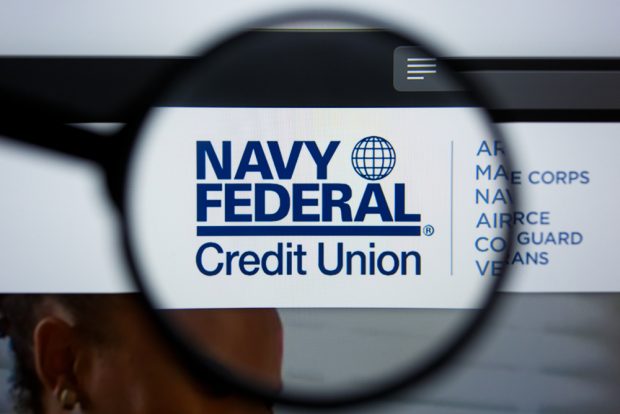 Source: Shutterstock.
Source: Shutterstock.
In the same month that Navy Federal Credit Union was looking to settle a member's class action lawsuit over its non-sufficient funds fee, another member filed a class action lawsuit disputing the credit union's international service assessment fees.
Siobhan Morrow of San Diego, Calif., filed a class action complaint on Aug. 21, 2020 alleging that Navy Federal unlawfully charged her a 1% international transaction fee when she bought a product from an overseas retailer using her checking account. While Navy Federal charges members a 1% International Service Assessment Fee for purchases made overseas, the issue is that Morrow bought the product while she was at her San Diego home, and she did not know the merchant was based in Cyprus.
Recommended For You
Navy Federal asked a federal judge to dismiss the lawsuit, arguing the complaint is "fatally flawed" for several reasons, according to its court documents filed in federal court in November.
The day before Morrow filed her lawsuit, Navy Federal agreed on Aug. 20, 2020, to a proposed settlement for a class action lawsuit with a credit union member over a dispute regarding Navy Federal's non-sufficient funds fee. The credit union is settling the lawsuit for $16 million, and it is expected to get a final approval from a federal judge in U.S. District Court in Alexandria, Va., in March.
The Morrow lawsuit is scheduled to get a hearing before a federal judge in U.S. District Court in San Diego in April.
According to her lawsuit, Navy Federal's fee schedule stated that a 1% international fee per transaction is assessed to members who make point-of-sale and ATM transactions that are made in foreign countries.
Morrow is seeking to represent a class of Navy Federal account holders within the U.S. and a distinct class of checking account holders within California who were assessed an international fee for internet purchases they made from within the U.S., according to court documents.
One of the lawsuit's main issues seemed to center on the contract term "made in foreign countries," which Morrow argued is ambiguous because Navy Federal does not define what it means for Navy Federal members to engage in transactions made in foreign countries.
"In the absence of an explicit definition or disclosure, the (fee) Schedule reasonably discloses to accountholders, including Plaintiff, that they will only be charged an (international fee) if they made a purchase while in a foreign country," the lawsuit stated. "By failing to define the term 'made in foreign countries' NFCU has opportunistically abused this silence and surreptitiously charged (international fees) when they could not be reasonably expected based on the contract."
However, Navy Federal also argued that its international fee is authorized for all transactions carried out in foreign countries and that any transaction takes place wherever the merchant is located.
As a matter of general practice and common usage, it is the location of the merchant who consummates the transaction that triggers the international fee because that location is where the transaction is legally performed. And because Morrow authorized the transaction to occur in Cyprus, the international fee was applied, Navy Federal said in court documents.
© 2025 ALM Global, LLC, All Rights Reserved. Request academic re-use from www.copyright.com. All other uses, submit a request to [email protected]. For more information visit Asset & Logo Licensing.








